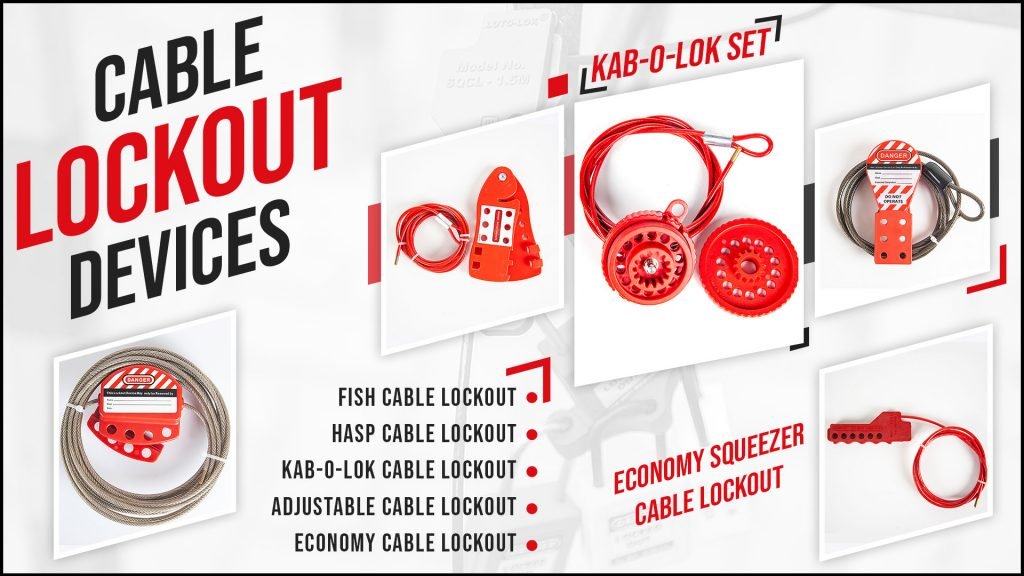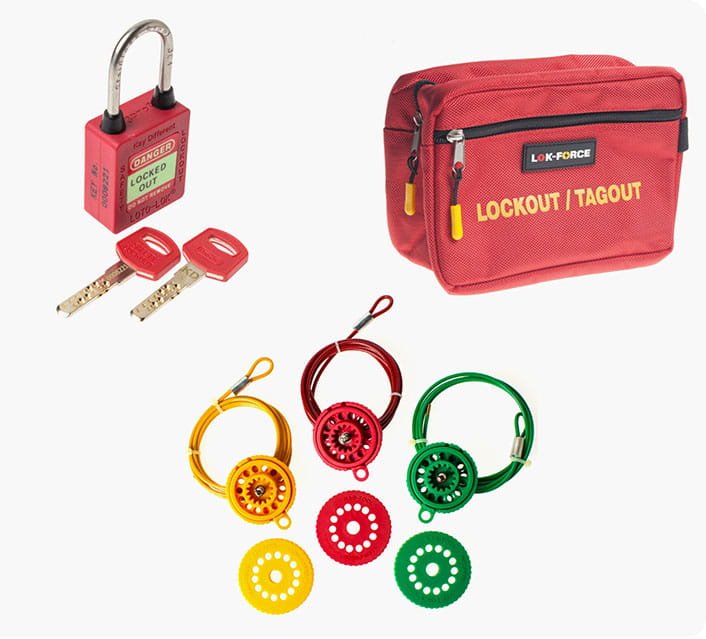Cable Lockout Vs Alternate Valve Locking Products
OSHA standard OSHA 29 CFR 1910.147 mandates the use of energy restraining and immobilizing devices to prevent workplace accidents. Electrical & Mechanical energies need to be locked and tagged prior to any maintenance being carried out.
When it comes to locking off valves (ie: mechanical energy), there exist a multitude of LOTO devices for immobilizing different types of valves, some of the most common being:
- Metal chains.
- Plastic Donut shape devices for locking Wheel Valves.
- Cable Lockout devices.
- Ball & Butterfly valve (Lever) lockout devices.
- Plug Valve lockout devices.
- Sanitary Valve (dairy & food) lockout devices.
Cable lockout devices are one of the most popular amongst these, being cost efficient and easy-to-deploy and compact vis-à-vis bulky plastic devices or heavy metallic chains.
See also – How Does Cable Lockout Work
Think about this: You need to lock 200 – 300 Wheel valves in one section of the plant. You need to evaluate which device offers the best-in-class solution to minimize fatigue and downtime.
- Metal Chains
Advantages: Tamper proof, difficult to cut, extremely secure.
Disadvantages: Heavy, prone to corrosion over time, may need to manually transport them long distances, difficult to handle, high fatigue, blocks considerable storage space.

- Donut shape LOTO Devices
Advantages: Tamper resistant, light weight (compared to chains), fast deployment, minimal fatigue.
Disadvantages: Bulky, prone to weathering if deployed for long periods outdoors, blocks considerable storage space.

- Cable Lockout Devices
Advantages: Single device can block multiple valve wheels depending on cable length, Tamper resistant, light weight (compared to chains & donut devices), fast deployment, substantial choice of devices, blocks considerably lesser storage space vis-à-vis metal chains and donut devices, minimal fatigue.
Disadvantages: Depending on the type of device used; independent cables which are not tethered to the device may need to be stored separately, prone to weathering if deployed for long periods outdoors.
Let’s say you need to lock 5 valves in close proximity to one another. This means either 5 separate chains or 5 rigid plastic Donut type LOTO devices would have to be individually fixed on each valve.
Enter the Cable Lockout Device – One device with a long cable would be sufficient to block 5 valves close to each other by quickly looping the cable through the wheels, removing slack applying padlocks.
Lockout Tagout is a critical safety procedure during plant maintenance and cable lockout devices are a smart choice when it comes to compliance with the additional advantage of reducing operational downtime.
* The author of this blog is Qaid Zohar – Director at LOTO Safety, Dubai.
This blog is written to educate interested parties on Lockout Tagout products.
KAB-O-LOK™
Cable Lockout
Proven in the
field to reduce
downtime.
Don't believe us?
REQUEST free samples today

Sample Pack consists of 1 each Red, Green & Yellow KAB-O-LOK™ Cable lockout Base + Operating Tool +2 Mtr. Cable + 1 Nos. 3PTP Red Padlock Key Different Model: 3PTPRKDR40 all packed in our Red LOTO Pouch.
*Courier / shipping costs to be borne by customer. Free samples to end users ONLY!
